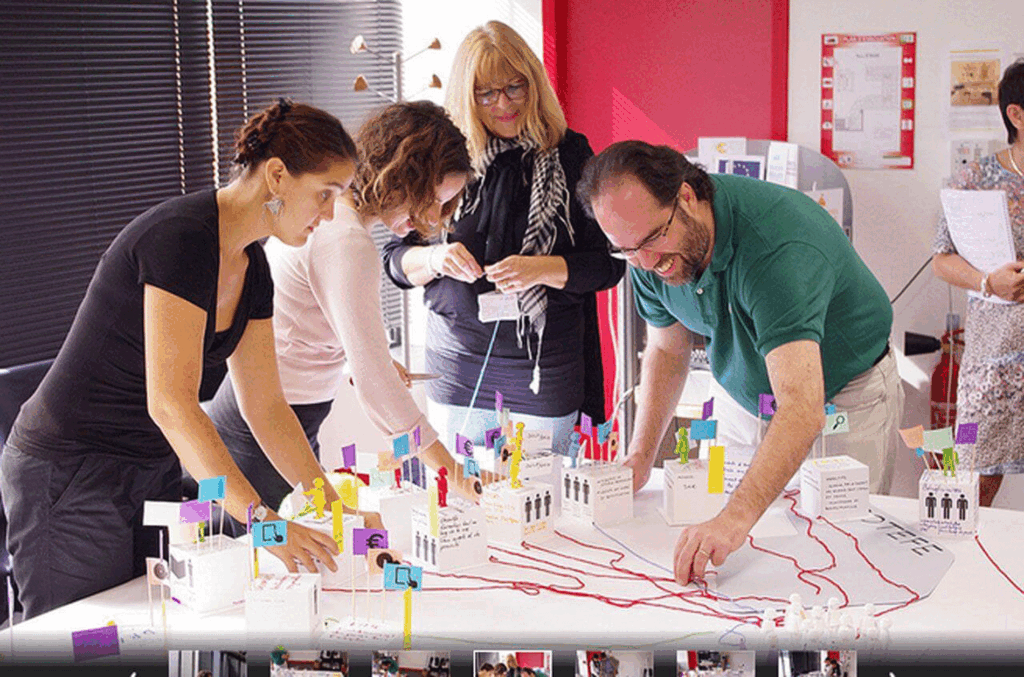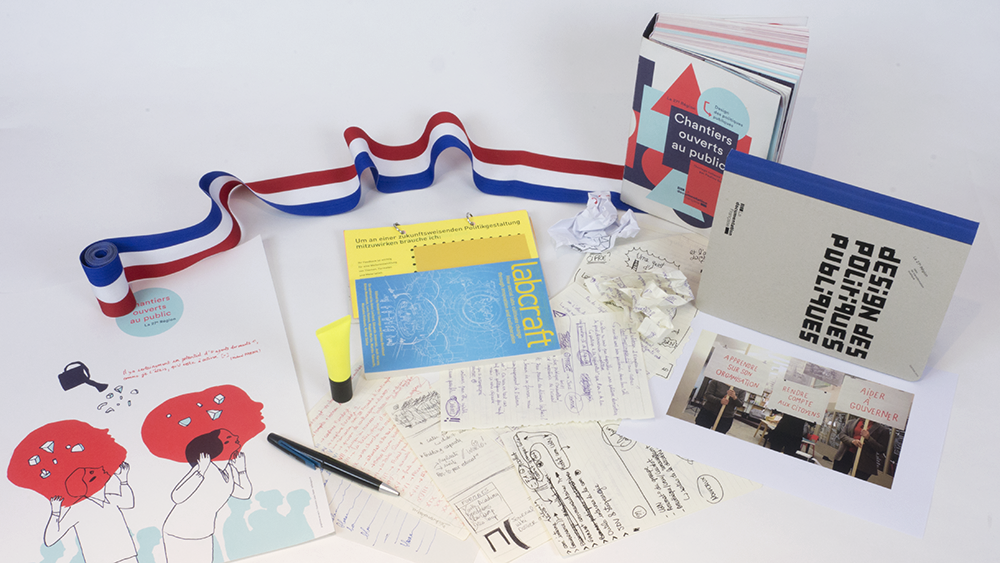What’s happening in the European Municipalist Network (EMN), of which Commons Network is a coordinating partner? In a series of blogs, our colleague Bea keeps you up to date.
During the past weeks, I interviewed three different people that are part of municipalist initiatives in Europe. The first interview was with Malin Widehammar from Democratic Transition/The Hub in Bergsjön, Sweden. The second conversation was with Matko Duijmovic, a 23-year old public policy student who decided to return to his home country Croatia to join the political platform Zagreb Je Nas, meaning “Zagreb is Ours”. For this last interview, I got to speak to Sylvine Bois-Choussy from the French public transformation lab La 27e Region.
Bea: Can you tell me about your work and your background? How did you get to where you are now?
Sylvine: ‘I first studied history but then I worked a long time in the arts sector because my interest lay there rather than in history. Because the art scene in France is very mature and structured, almost too predictable, I decided to change and delve into the much younger scene of public design. I specifically worked on building European cooperation because it was the European sphere that allowed us to find places to experiment in national public spaces focusing on art and social innovation, which I found very important. I focused on open spaces for testing very concrete actions, on the public sphere as a space for caring for people, especially the most vulnerable, on long-term investments, on having an international perspective, which is much less present in public administration than in the french art scene.
‘This is my personal background. Now, La 27e Région is a non-governmental laboratory of public transformation based in France, founded 15 years ago. It is made up of multi-disciplinary teams composed of designers, idea generators, people from consulting and administration and social scientists from many fields. All of them are experimenting with the limits of their own disciplines, questioning public policy and administration to be more democratic. Its main aim is to conduct action-research programmes to test new innovation methods for designing public policy involving all public stakeholders.
‘In terms of people from a design background, most are working in the private sector and those in the public sector work in NGOs, but not really in public administration. It followed then to ask whether we could improve democracy and policy design by restarting and widening the disciplines and perspectives involved, emphasising multidisciplinarity. And could we do this in an experimental and theoretical way? These two questions were and still are key in the development of La 27e Région.
‘During the past five years we have worked with local governance in different topics. As the name states, 27 regions are membership organisations in addition to 45 local governments. We work on experimental programmes with them, aiming to create shared and open governance, space for cooperation, commons, open source resources, and contributing to the social transformation movement.
‘After a testing period, local governments wanted to do these programmes themselves, so we switched to building the necessary capacities within the local governments in addition to focusing on cultural transformation and innovation capacities that are shared and more impactful. Following the yellow vests movement and the increased dissidence towards public institutions, we focused on new ideas of governance based on how to create more shared power dynamics.
‘In 2018 we enacted the commons programme taking on board local governments and organising eight trips around Europe, where we met public administrators that have changed the way they work in the spirit of commons. From this stemmed our connection to Commons Network.
‘In sum, La 27e Région focuses on democracy, resilience, sustainable alternatives, but our approach is based on a perspective towards transforming public administration. We believe that to build capacities we need strong public stakeholders, but also not leave things fully to civic society, and rather emphasise collaborations, investments, etc., and reinforcing public administration through internal transformation and new forms of accountability, both social and environmental.’

Bea: Can you tell me more about the role of design in your field of work?
Sylvine: ‘What I was telling was 15 years ago, now it has changed. There is now more demand and and supply of design agencies and designers that work with public administration. Design is now also taught in political science schools. Still, many questions remain on how to strengthen the capacities of this sector, and how to develop a critical approach to design and innovation. Additionally, there are many misunderstandings around design. For example, design thinking is not design, as designers are able to create a methodology depending on context.
‘Design is now more popular in public administration and in the culture of the public sphere, designers, freelancers, and public administrations contributing to build a local ecosystem of design. It is an important topic, especially maintaining a critical approach and repoliticizing design beyond methods e.g. design to make everything digital vs design for looking at the problems.’
Bea: How is your work connected to the EMN?
Sylvine: ‘Closely related to municipalism is the topic of commons, with shared questions of governance and how we can build more emancipation. Although we do not always use the term municipalism, we focus on building commons and many aspects of municipalism, mostly working with local governance, and basing ourselves on local powers and local capacities.
‘We also have a connection to members of the EMN, such as Commons Network, but also Transnational Institute, which inspired questions on how to recreate public services that are more democratic, or for example Barcelona en Comú, that inspired legal innovation. These are all connections that we want to build further.’
Bea: Why do you think it is important to have a network between municipalist actors in Europe? One which also organises meetings, skill-sharing sessions, etc.
Sylvine: ‘Part of the value of La 27e Région stems from its role connecting French public agents as experimentation, which is developed in other cities. In addition, we aim to be a resource center set up to build and pool knowledge and know-how, and to encourage peer-to-peer interchanges in the public sector. We place strong value on that because it is important to be inspired by other projects while being aware of specificities of local contexts. For example, the UK is not the same as France, there are differences in the capacities of the local sphere.
‘It is thus important to have specific, local, and contextual conversations. Sometimes in EU networks conversations get very theoretical, and the English doesn’t help. It is a big challenge for organisations to create spaces and resources, so it is better to organise conversations. They would need spaces for distributive experimentation, connecting people that are experimenting with similar ideas, adapted to each context, which would be interesting how it is adapted.
Bea: Do you think municipalist ideas, policies, movements, etc. develop/look differently across Europe?
Sylvine: ‘I assume so, due to differences in local contexts. But also, when there are transitions, they often create feelings of injustice, so it is key doing things as democratically as possible. Probably many places in Europe have the same problems, cities have the same challenges, because of having similar transitions. Also, throughout municipalism, democracy and other values are something constant.’

 ☰
☰